Table of contents
Hair loss is not a concern that you will often hear about in a discussion encompassing the effects of polycystic ovary syndrome (PCOS). Mostly, it is hirsutism, i.e., excess facial and body hair, that is discussed more in association with PCOS. However, the low frequency of a condition doesn't merit overlooking it completely. Some women do experience hair thinning and hair loss because of PCOS. So yes, PCOS hair loss can be one of the reasons behind your accelerated hair loss! The condition is also known as female pattern hair loss, and we will talk about it in detail in this brief.
PCOS & Hair Loss: Exploring the Connection
The male hormones produced by the female body called androgens are responsible for hair growth in body areas like the underarms. Of course, this isn't their only function, but a very crucial one in the scope of this discussion.
Testosterone is one such hormone. An excess of these hormones is produced during PCOS. As a result, the frequency of masculine features in a feminine body increases. The condition is dubbed virilization and includes excessive hair growth as well. But this excess hair growth is confined to regions like the face, neck, and chest. An increased release of these androgenic hormones can lead to hair thinning and hair loss on the head. Unfortunately, the event unfolds at a greater pace in the front of the scalp. That is how androgenic alopecia is triggered because of PCOS!
Can They Grow Back?
Hairs lost in the female pattern hair loss usually don't grow back on their own. It is frustrating, understandable! However, all hope is not lost since one can stimulate new hair growth. What is more, you can mask up PCOS-induced hair fall as well. Several strategies can come in handy in this regard. These include changing hairstyle if you are worried about thinning hair or getting shorter hair if you are worried about thinning hair. Baldy patches can be covered by hairstyles like top knots and low ponytails.
Treating PCOS-Induced Hair Fall
As we mentioned earlier, the core issue in PCOS is hormonal imbalance. Therefore, most of the side effects are countered by hormonal regulation. Various treatment options have proven to help achieve this objective. Before we look at some of these treatment methods, let us state that the success rate of these methods varies from one individual to another. Sometimes, a single treatment method can produce the desired results. Sometimes combinative therapy might stop the hair fall. However, the most important thing is not to give up against PCOS hair fall and stay hopeful!
Oral Contraceptives
Birth control pills have proven to be an effective option for managing androgen levels. As we described earlier, once you manage your androgen levels, it becomes easier to manage PCOS hair loss. Bonus? These contraceptives are also helpful in managing irregular periods and acne. A combination of anti-androgen drugs with oral contraceptives is often prescribed to treat PCOS-induced hair loss.
Spironolactone
Some of you might already know this aldosterone receptor antagonist's functions. The FDA approved this oral medication for treating fluid management. But not many people are aware of its utility in treating androgenetic alopecia. Spironolactone often works by countering androgen's effect on skin and works with an oral contraceptive.
Minoxidil
If you are searching for FDA-approved drugs to treat female pattern baldness, Minoxidil is the only name that you will come across. You can apply the topical treatment to the scalp daily to promote hair growth. In some cases, it even gave the hair a thicker appearance.
Hair transplant
If you are open to surgical treatments, then a hair transplant is the most appropriate option. The process involves surgical removal of hair and hair follicles from one area and their transplantation into the area of thinning or baldness. Of course, hair transplants are a more complicated option to consider, given that these cannot be performed in one session. What is more, these can cost a lot as well. Also, your insurance doesn't cover a hair transplant since it is classified as a cosmetic procedure.
How About Some Home Remedies?
Eating a nutritious diet and keeping stress levels low can help prevent hair loss and encourage hair growth.
In addition to these steps, other ways to encourage hair growth include:
- not using hair accessories that can cause hair breakage, such as hairpins, clips, and rubber bands
- avoiding styling products that can damage and break the hair, such as blow-dryers set to a high heat, straightening irons, and curling irons
- limiting the use of bleach, relaxers, and hair dyes
- avoiding excess shampooing or brushing
- when the hair is wet, avoiding brushing it or applying plastic or rubber hair ties
Treating the hair as gently as possible can help preserve it and minimize the rate of hair loss.
Lifestyle changes
Enough credible evidence exists that lifestyle intervention improves body composition, hyperandrogenism (high male hormones and clinical effects) and insulin resistance in women with PCOS. Again, the management strategy helps reduce not only hair loss but also other PCOS symptoms too. Did you know that just a five percent reduction in your body weight could lead to better and more effective management of PCOS symptoms?
Supplements
In this subsection of the discussion, we are going to have a look at some of the popular supplement options that can prove to be effective in countering PCOS-induced hair loss.
Zinc Supplements
Zinc supplements can counter the many effects of PCOS, including hair loss and hair thinning. In a published study, using 50 mg/day elemental zinc for 8 weeks among PCOS women had beneficial effects on alopecia, hirsutism, and plasma MDA levels.
Vitamin B Supplements
One of the best-known vitamins for hair growth is a B vitamin called biotin. It’s role in helping PCOS situations is not very extensively researched, but studies link biotin deficiency with hair loss in humans. Other B vitamins help carry oxygen and nutrients to your scalp, which aids in hair growth. Whole grains, meat, seafood, and dark, leafy greens are all good sources of B vitamins.
Iron
Iron deficiency is among the main causes of hair loss, and people with PCOS typically have lower ferritin levels. Eating foods that are rich in iron and/or taking iron supplements can help raise iron levels.
Protein
Hair is made almost entirely of protein. Consuming enough is important for hair growth. If you are not consuming enough protein in your diet, your hair is likely to become dry, brittle and weak. Extremely low protein diets may result in restricted hair growth and even hair loss.



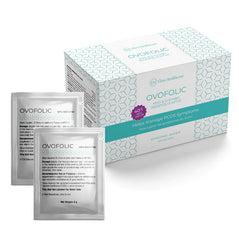

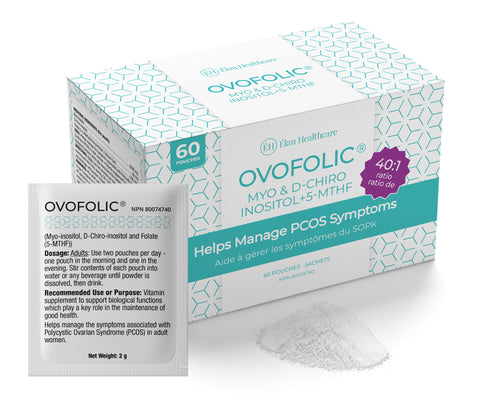
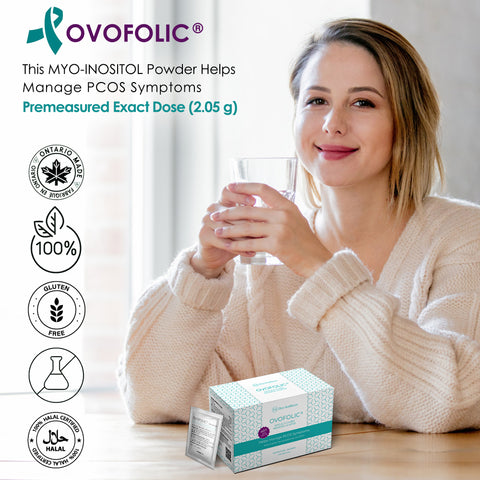
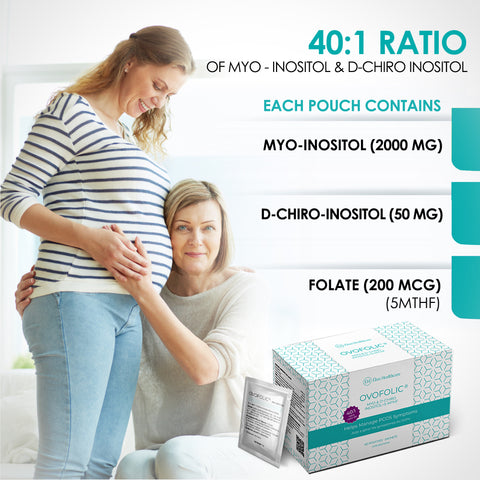
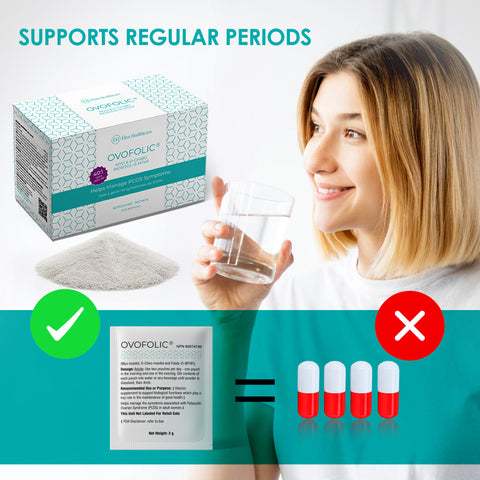
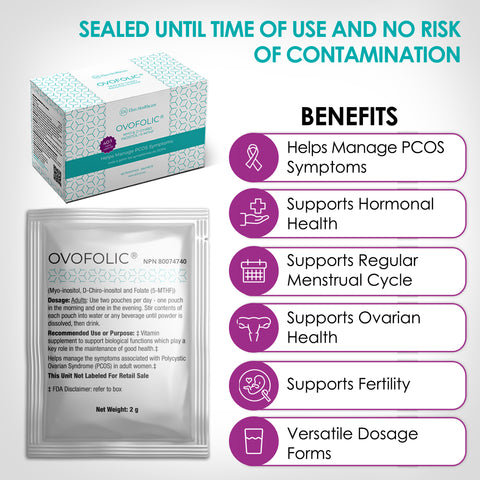
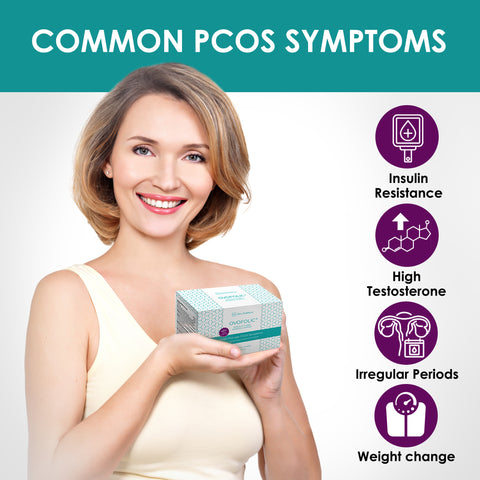
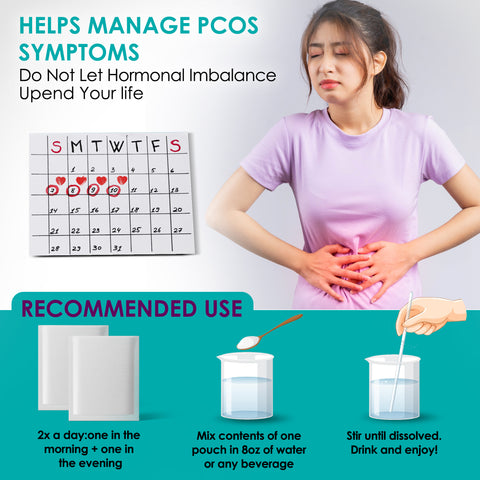
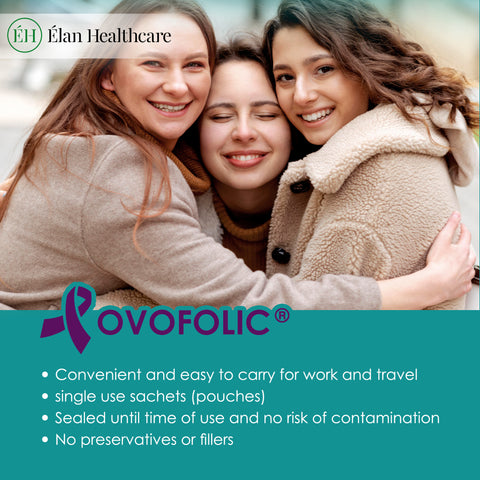
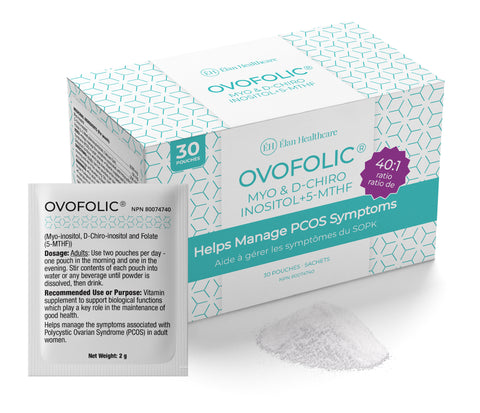









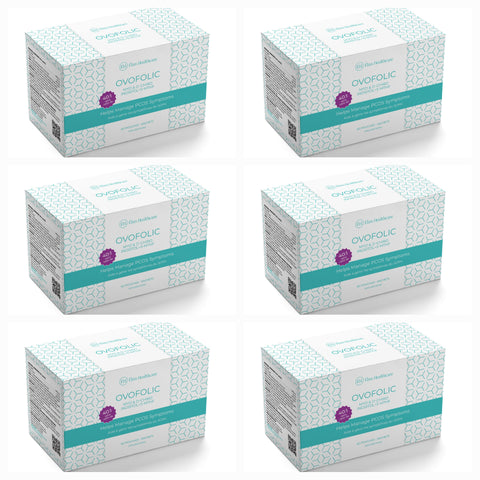
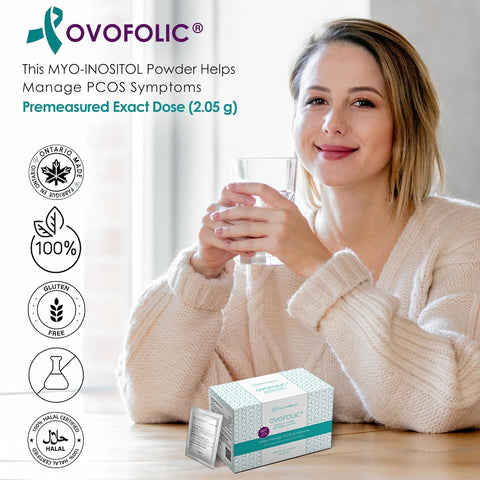
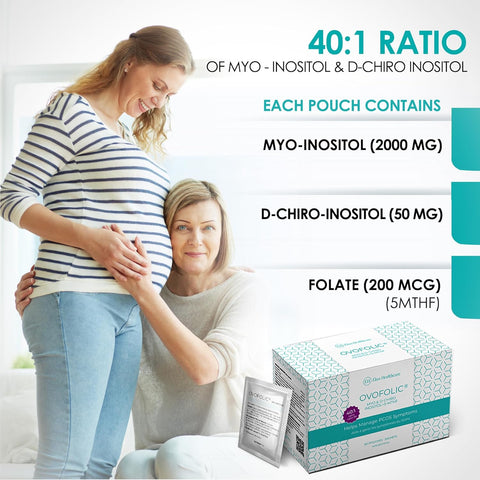
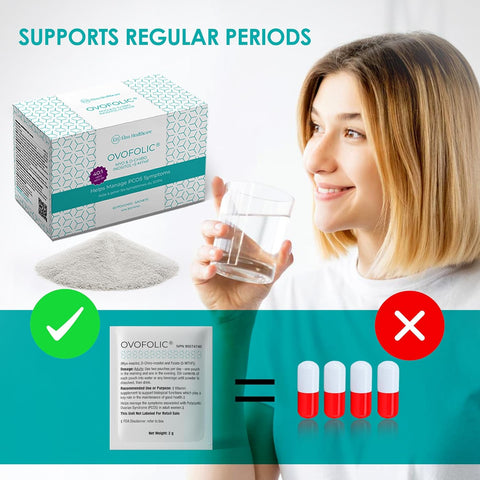
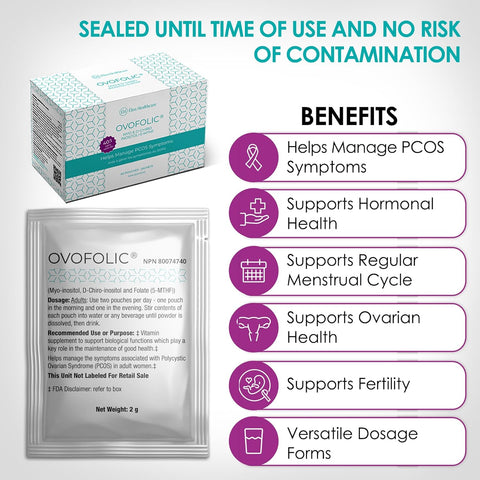
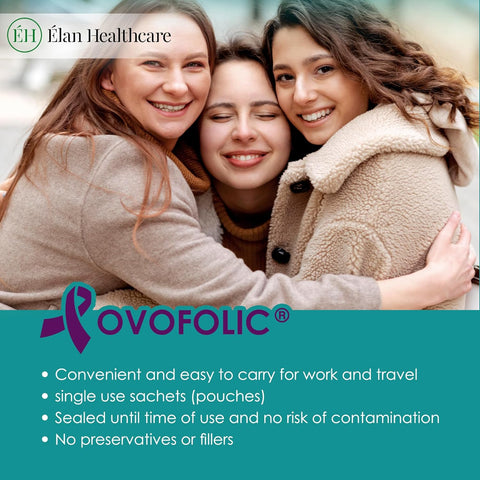
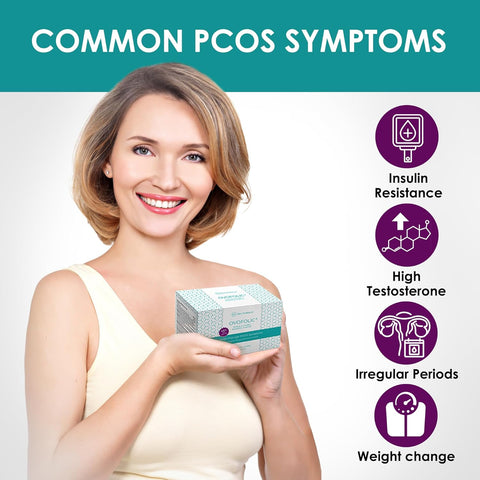
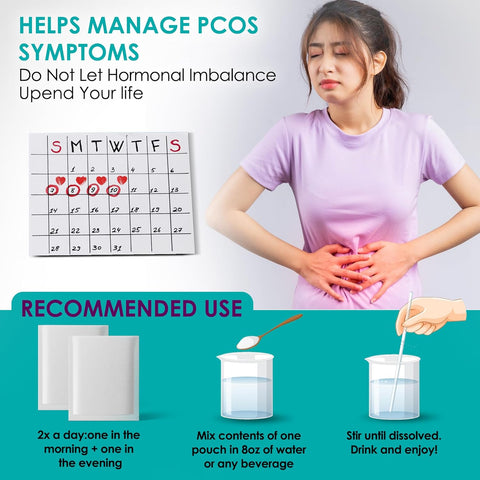
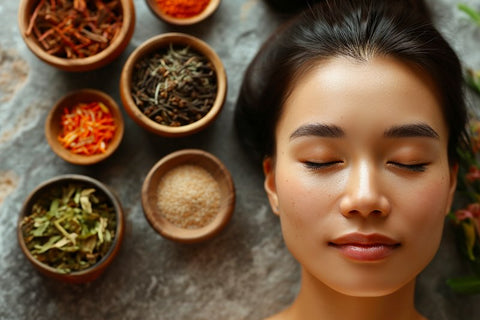
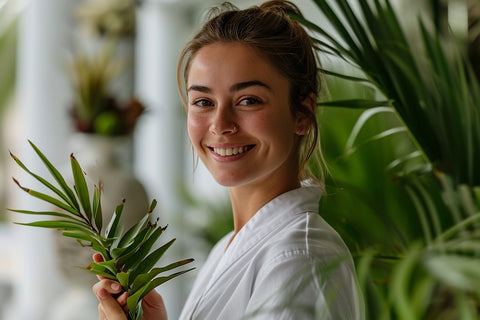
No comments yet.
There are no comments for this article. Be the first one to leave a message!
+ Open to leave a Comment